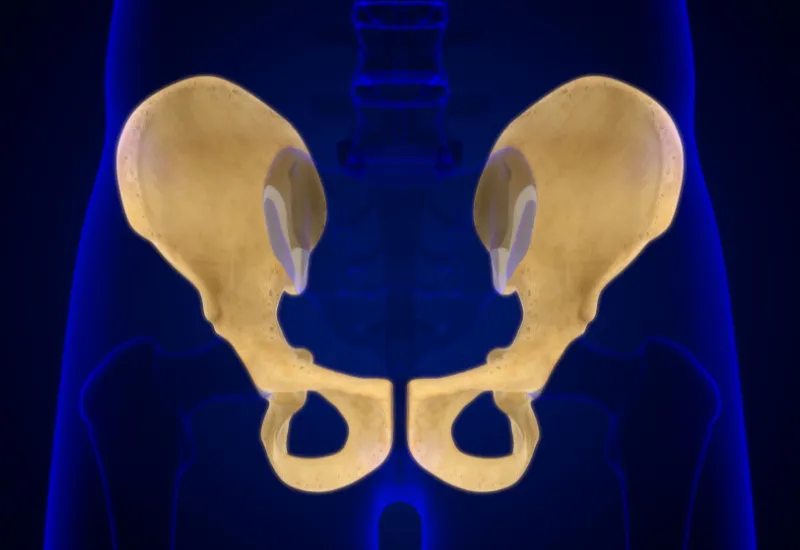A Pelvic MRI typically costs around $1,000-$5,000 without insurance and depends upon several factors, including the geographical location of the testing center, the type of testing center, and the complexity of the medical condition being tested.
For example, a pelvic MRI in New Hampshire hospitals costs around $2,835-$4,753 and approximately $2,758 to $3,109 in Los Angeles hospitals.
Health insurance plans cover a pelvic MRI in most cases. The standard out-of-pocket expenditure for patients with health insurance includes a copay for the doctor’s visit and, in certain cases, a copay for the MRI, but only if the deductibles are met.
There are, however, some additional expenditures as well. As mentioned before, claustrophobic or anxious patients cannot undergo the testing procedure in a traditional MRI machine without a mild sedative such as propofol (Diprivan). About one in every 20 patients undergo this step, and it costs an additional $125-$400.
Similarly, about 5%-10% of patients require a contrast solution or special dye administered through a vein to enhance the imaging. This contrast solution costs about $100-$300 extra, on average.
Let Cura4U’s approved centers around United States reduce these prices for your employees and yourself, with some of the best alternative to health insurance plans around in 2024. With over 2,200 imaging locations nationwide, you can get the best prices for your investment without ridiculous copay from physicians.
Cura4U: Best Alternative To Traditional Insurance
Cost Of Pelvic MRI With Cura4U
The table below showcases a simple comparison between the costs of a Pelvis MRI without insurance and the Cura4U Healthcare Plan.
| Without Contrast | With Contrast | |
|---|---|---|
| Average Hospital Cost | $1,528 – $4,753 | $1,628 – $5,053 |
| Average Outpatient Facility Cost | $1,000 – $5,000 | $1,100 – $5,300 |
| Cura4U Discounted Cash Price | $780 | $1685 |
What is a Pelvic MRI Scan?
A pelvic MRI scan allows physicians to view the organs, bones, tissues, lymph nodes, and blood vessels of the body’s pelvic region – the area between the hips. The pelvic region holds several critical muscles and the reproductive organs, and thus an MRI scan is imperative for an appropriate diagnosis.
A pelvic MRI scan can allow doctors to root out potential problems that other diagnostic tests may hint at, such as CT scans and X-ray imaging. Pelvic MRI scanning can also be used to:
-
Investigate the spread of particular kinds of cancer.
-
Diagnose hip pain that doesn’t get better with treatment.
-
Evaluate the medical conditions behind specific symptoms.
Why Should you get a Pelvic MRI scan?
Doctors typically prescribe a pelvic MRI scan to diagnose complications with the reproductive organs. However, there might be certain other reasons, depending upon your gender. A few of them are as follows:
- To monitor congenital disabilities.
-
To look into injuries or signs of trauma in the pelvic area.
-
To analyze abnormal X-ray or CT scan results.
-
To root out the reasons behind pain in the pelvic region or abdominal area.
-
To detect cancer or suspected cancer in the bladder, rectum, urinary tract, or reproductive organs.
-
To look into unexplained complications faced while defecating or urinating.
Some reasons behind pelvic MRI may be different for men and women. For women, a doctor may prescribe a pelvic MRI to investigate:
-
Abnormal masses or lumps in the pelvic area, such as uterine fibroids.
-
Irregular vaginal bleeding.
-
Unexplained pain in the pelvic or abdominal region.
-
Infertility.
For men, a pelvic MRI may look for reasons such as:
-
Abnormal lumps in the testicles or scrotum.
-
Unexplained swelling around the testicles.
-
An undescended testicle.
Cura4U: Best Alternative To Traditional Insurance
How Should You prepare for a Pelvic MRI scan?
It is essential to consult with your medical health professional before getting tested as preparation conditions for a pelvic MRI may differ from person to person. Patients are commonly asked to avoid food four to six hours before the exam for better testing.
In some cases, they may also be asked to clear their bowels before the exam, which laxatives or enemas can do. Women may be advised to have a full bladder before the exam, but that depends upon the medical complexity because of which they need testing.
An MRI scan uses strong magnets and thus attracts metal. Therefore, it is also vital to inform your medical professional if you have had any recent surgeries or have metal implants anywhere in your body, such as a pacemaker or permanent dentures. Your doctor may prescribe you a different test based upon the nature of your metal implants and a thorough examination of your pelvic region.
However, that may not always be the case, as some pacemaker models can be reprogrammed not to cause any disruptions before an MRI scan. Before the test, you must also remove any and all kinds of jewelry, piercings, accessories, or metal-infused underwear.



